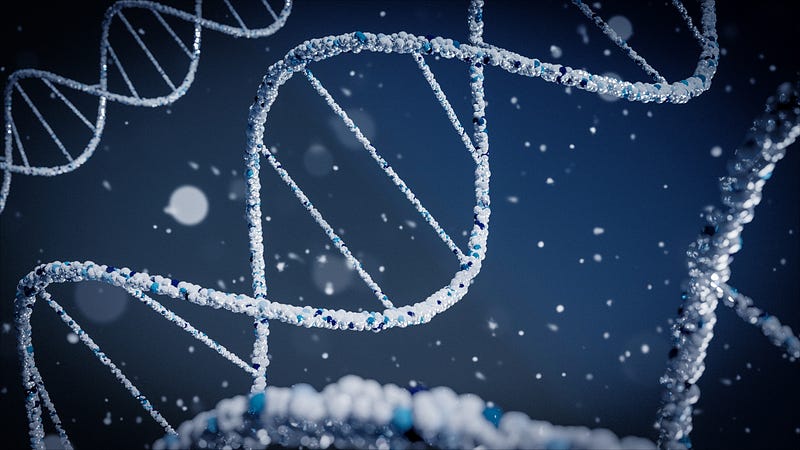The Dark Side of CRISPR: The Risks of Gene Editing Technology
Written on
The Consequences of Playing God
In the world of genetic engineering, we find ourselves facing ethical dilemmas and potential dangers. The case of He Jiankui, a Chinese scientist who was imprisoned after creating the first gene-edited humans, raises significant concerns. These so-called designer babies were engineered using CRISPR technology to eliminate the risk of HIV, but the broader implications of such experiments remain troubling.

With He Jiankui's release, there are calls for more stringent oversight to protect these children, though some worry about privacy violations. The question arises: Did we consider the consequences before embarking on such experiments? The rapid advancement of technologies like CRISPR could potentially pose severe risks to humanity.
The Future of CRISPR and Its Implications
The availability of CRISPR-Cas9 technology is expected to grow exponentially in the coming years. Before his arrest, Jiankui expressed ambitions to establish a business focused on creating designer babies. This raises alarming possibilities: what if rogue scientists, motivated by profit or power, create unregulated labs to experiment with gene editing? Historical precedents suggest that ethical constraints often fall by the wayside when financial incentives are involved.
The track record of humanity in managing emerging technologies is far from exemplary. We tend to develop and deploy innovations before fully grasping their ethical and societal implications. This pattern reveals a troubling truth—playing God with genetic engineering may lead to catastrophic outcomes.
The Need for Caution
Bioethicists have expressed concerns about the long-term effects of gene editing, particularly in the context of the children born from these experiments. A recent article in Nature emphasizes that these individuals require special protections due to their unique vulnerabilities. The potential for unintended genetic mutations poses risks not only to them but also to their descendants.
As we ponder the implications of editing genes to eliminate diseases, we must also consider the possibility that other health issues could arise from these interventions. This situation necessitates a cautious approach—monitoring the health of these children is crucial to understanding the full range of consequences.
The first video discusses how genetic engineering could reshape our future, highlighting the dual-edged nature of CRISPR technology.
The Perils of Unchecked Scientific Advancement
While science has undeniably yielded significant benefits—think pacemakers and MRI machines—it is essential to maintain a critical perspective. The potential misuse of technologies like CRISPR and AI in military and surveillance applications raises serious ethical questions. We risk unleashing dangers that could destabilize societies worldwide.
The narrative surrounding new technologies often promises safety and efficacy without adequate long-term assessments. This tendency to rush into solutions can lead to dire consequences, as evidenced by the controversies surrounding pesticides like Glyphosate, which has been linked to serious health risks after decades of use.
The Need for Accountability
The solution lies in recognizing the inherent risks associated with rapidly advancing technologies like CRISPR and demanding strict oversight before they are widely implemented. We must advocate for extensive testing periods—20 to 30 years—before any new technology is unleashed on the public. Otherwise, we may find ourselves as unwilling subjects in a grand experiment, with little recourse if things go awry.
As we face the possibility of a food crisis exacerbated by geopolitical tensions and climate change, it becomes increasingly clear that unchecked corporate interests are driving the narrative. The convergence of biotechnology and agriculture, particularly with companies like Impossible Foods, underscores the urgent need for ethical considerations in the development and deployment of new technologies.
The second video delves into the ethical implications of CRISPR, questioning whether this technology is a boon or a potential threat to humanity.
In conclusion, it is imperative that we remain vigilant and prioritize ethical considerations in the face of rapidly advancing technologies. The risks associated with CRISPR and similar innovations must not be underestimated, and we must work collectively to ensure that we do not repeat the mistakes of the past.